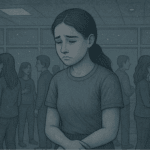Election Anxiety and Mental Health: Insights from a National Survey
As election season approaches, many Americans experience heightened levels of stress and anxiety. To better understand how this impacts mental well-being, a survey of 2,000 individuals was conducted. The results provide insight into the complex relationship between election coverage, mental health, and anxiety. Below is an analysis of the key findings, highlighting how election-related stress is affecting people across the country.
Time Spent on Election Coverage
The survey explored how much time individuals spend exposed to election coverage each day. The data reveals that the majority of respondents (28.75%) spend between 10 to 30 minutes a day on election-related content, while 17.6% reported spending 1-2 hours. A smaller group (1.75%) spends less than 10 minutes, and 0.6% report exposure exceeding 6 hours daily. This exposure often comes from multiple platforms, including TV, social media, and other outlets, frequently without individuals actively seeking it out.
Primary Sources of Election Coverage
Television remains the dominant source of election coverage, with 46.19% of respondents indicating it as their main source. Social media follows closely, with 34.43% of respondents primarily consuming election-related content on those platforms. 7.84% rely on online articles, while 3.81% prefer radio. Notably, 3.11% of respondents reported not consuming election coverage at all.
The Impact of Election Coverage on Mental Well-Being
When asked about the impact election coverage has on their mental well-being, the responses varied. 28.79% of individuals indicated a positive impact, while 21.43% reported a negative effect. The largest group (49.79%) felt that election coverage had neither a positive nor negative impact on their mental health, demonstrating the wide range of reactions people have to political news.
Key Stressors Contributing to Election Anxiety
For those who reported a negative impact on their mental well-being, several key stressors were identified. Navigating misinformation (57.64%) and the prevalence of “doom and gloom” messaging (56.14%) were the top contributors to anxiety. Additionally, 54.64% of respondents expressed concern about the aftermath of the election, while 42.11% worried that their preferred candidate might not win. The volume of election coverage was overwhelming for 38.6% of respondents, exacerbating feelings of stress.
Negative Impacts of the Election on Mental Health
The survey also delved into the specific negative impacts of the election itself on mental health. 30.4% of respondents reported increased anxiety related to the election, while 22.4% said they felt overwhelmed. 18.4% experienced heightened feelings of anger. However, 32.35% of respondents said the election was not negatively affecting their mental well-being.
Social Media's Influence on Election Anxiety
Social media plays a significant role in how individuals experience election-related stress. 21.48% of respondents agreed that election coverage on social media was damaging their mental health, while 36.31% disagreed. 5.53% indicated that they do not use social media at all. These results suggest that the influence of social media varies depending on personal engagement with political content.
Anxiety About the Post-Election Future
Many respondents expressed anxiety about the future of the USA following election day. 40.30% reported experiencing some anxiety, and 22.65% indicated a significant amount of anxiety. In contrast, 19.80% of respondents reported no anxiety about the future post-election.
The Demand for Unbiased Election Coverage
A substantial portion of respondents (60.9%) expressed a desire to see more unbiased election coverage. This highlights growing dissatisfaction with perceived media bias and a call for more balanced and objective reporting on political events.
Avoiding Election-Related Conversations
For those experiencing election-related anxiety, discussing the topic with others can be challenging. 36.6% of respondents reported avoiding conversations about election anxiety with friends or colleagues who support opposing political parties. In the workplace, 52.96% of respondents said they actively avoid election-related discussions because it makes them anxious.
Seeking Support for Election Anxiety
Despite high levels of anxiety, the survey found that only 15.4% of respondents have sought support for managing election-related stress. The majority (73.5%) indicated that they have not sought help and do not plan to, although 11.1% are considering seeking support.
Observing Election Anxiety in Others
Respondents were also asked whether they had noticed friends, family, or colleagues becoming increasingly anxious about the election. 35.15% said they had noticed increased anxiety in others, while 49.15% had not. 15.7% were unsure.
Conclusion: Finding Balance During Election Season
This survey highlights the varied ways in which election coverage is impacting mental health across the country. While some individuals manage their anxiety or avoid the topic, others find the overwhelming amount of coverage and misinformation to be significant stressors. As the election season intensifies, it is crucial for individuals to seek balance, limit their exposure to anxiety-inducing content, and consider seeking support when needed. These findings provide valuable insights into the broader conversation about mental health during politically charged times.












